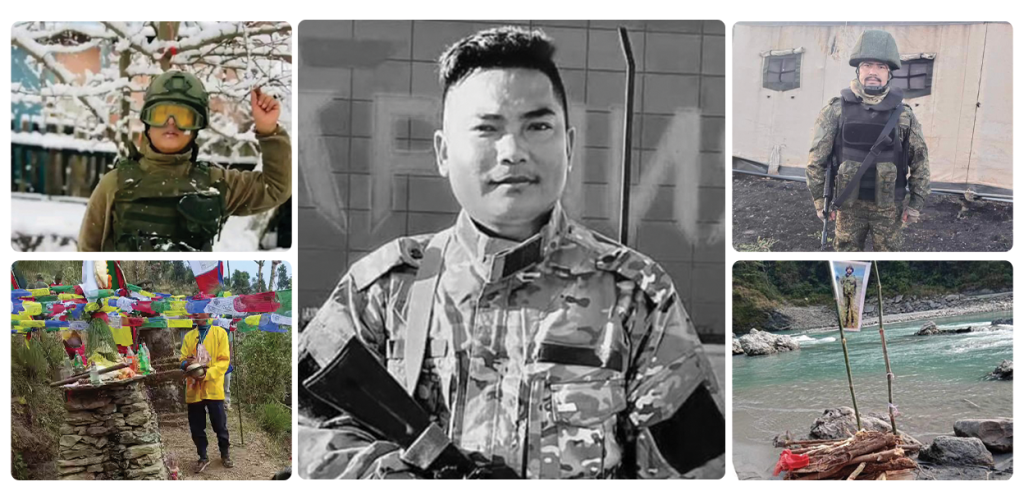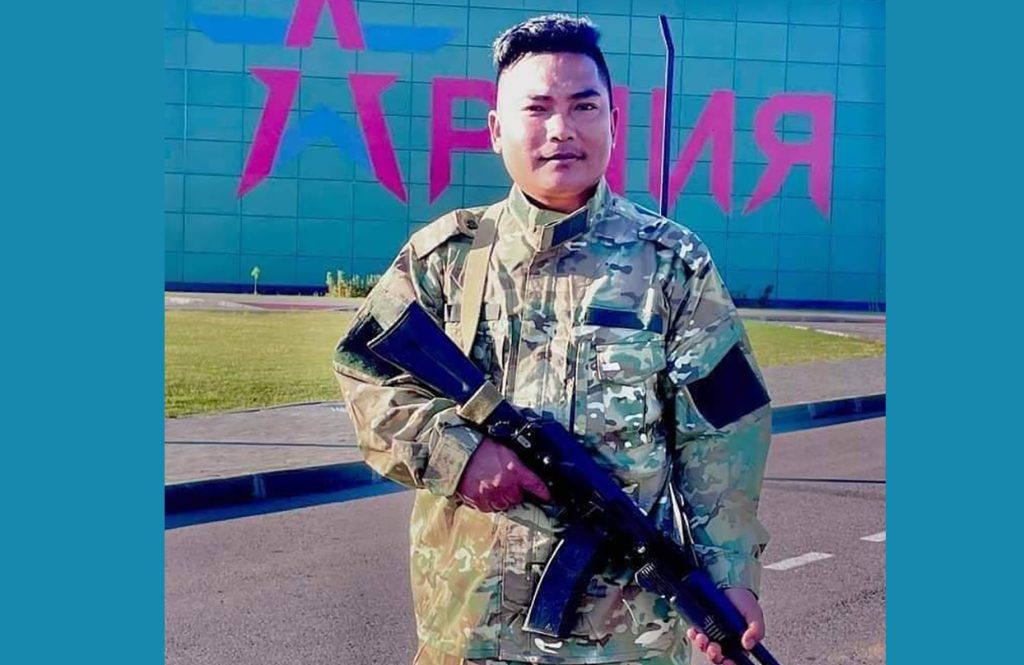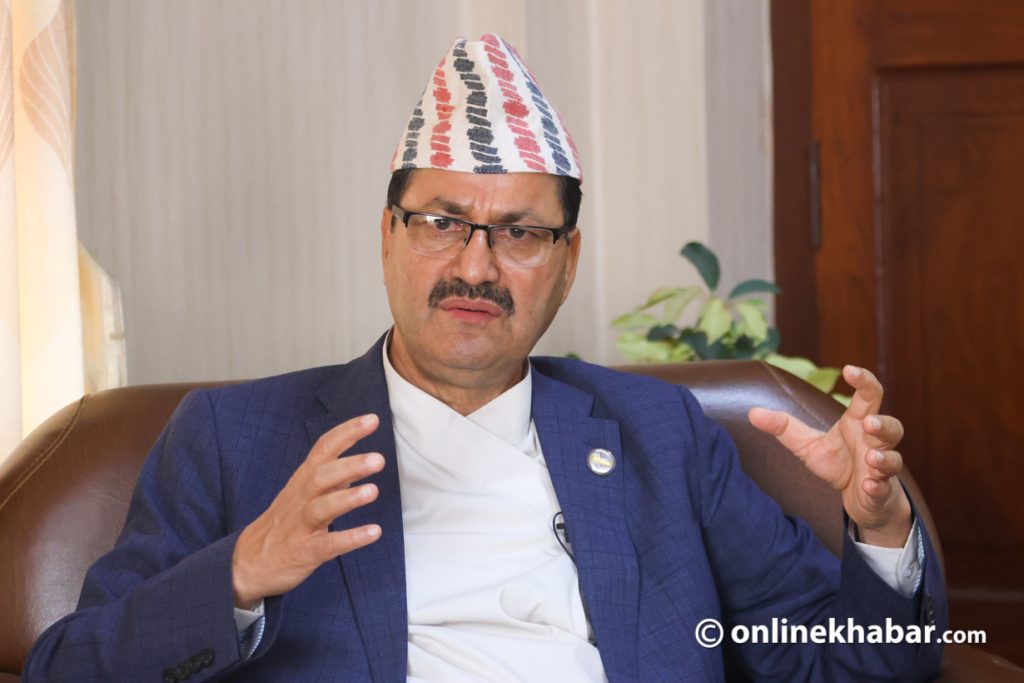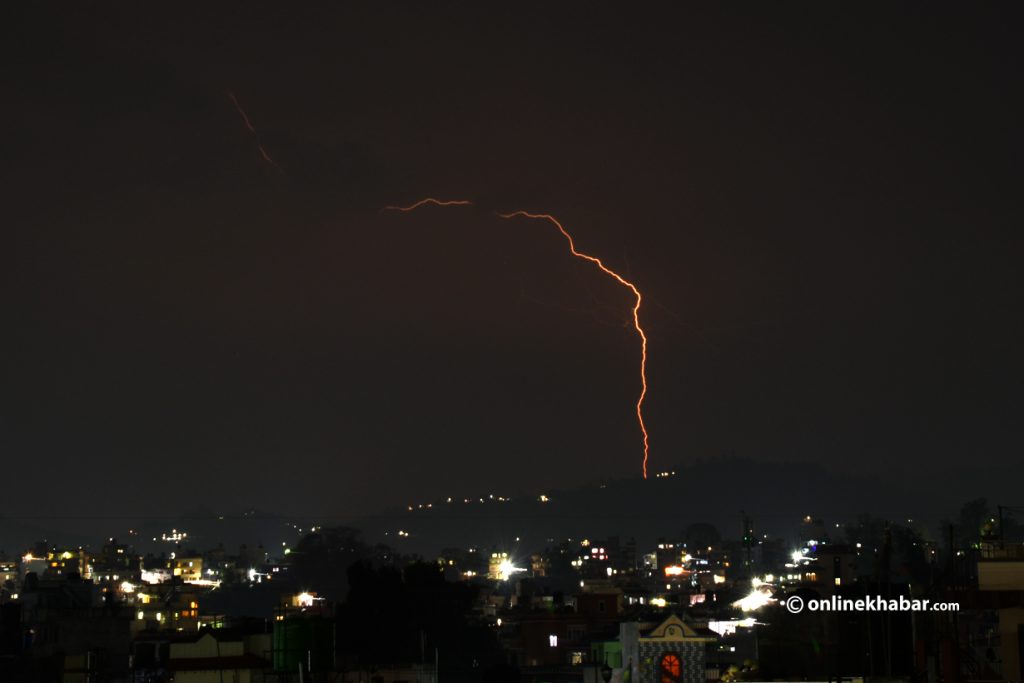
It was not just out of whim that Ramesh (name changed upon request) from Pyuthan returned home from Russia. Even the journey that took him there was a calculated risk.
For those in power, the Russia-Ukraine war has turned into politics, but for people as desperate as Ramesh, it has become a means to find employment.
Ramesh, who previously spent three years in the Gulf countries, had endured a lot and was seeking a new destination for employment. That is when he encountered Ganesh Nepali, Mohan Wali, and Sushant Kunwar from Salyan. The three agents recommended Ramesh explore opportunities in Russia, particularly in the army. Despite the ongoing conflict between Russia and Ukraine, the agents strongly encouraged him not to miss out on the job opportunity.
An offer he could not refuse
Ramesh was told he would make nearly Rs 500,000 a month if he enlisted in the Russian army. The agents even told him that could double if he went to the heart of the battle.
“They told me after a year in the Russian army, I would be eligible for a red passport and that I could then apply for a US visa. It was all too tempting,” he says.
Getting to Russia, however, is not easy if you do not have a student or a work visa. But with agents, things become smoother as they find loopholes to export people from Nepal into the warzone where many Nepali have lost their lives.
Like many, Ramesh went to Russia on a tourist visa. Thanks to a ‘setting’ with various parties, they told Ramesh he had to pay Rs 500,000 if he wanted to go to Russia. Ramesh had told a few others about the offer the agents had given him and he, along with three others including his brother-in-law paid Rs 500,00 each to enter Russia through illegal channels.
Joining the Russian army

Like all Nepalis who left for Russia, Ramesh and his friends took the route via Dubai.
“These agents have people everywhere. By the time we got to Dubai, our group had expanded to 28 people,” he said.
After spending a few nights in a hotel in Dubai, the group was then flown to Moscow. Raj Wali, an agent then took them to a Russian army camp straight from the airport in Moscow.
“Outside, he instructed us to go inside and declare that we were here to get enrolled in the Russian army,” said Ramesh. “The agent had given us detailed instructions, and we followed them accordingly.”
As Ramesh entered the inner camp of the Russian army, he found that 52 Nepalis had enlisted to fight in the Russian-Ukraine war.
To enlist in the Russian army, they had to undergo the minimum physical assessment and meet other requirements. However, the Russian army did not thoroughly examine them. Ramesh then realised that the Russians just needed as many individuals as possible.
As Ramesh and others spent more time in the army, he started to understand how effectively the Russians had recruited Nepalis.
“There were around a thousand Nepalis. Like me, they too had been lured with money,” he said.
Threat to life

Life in the Russian army was not easy. Ramesh recalls how the commanders were verbally abusive, even resorting to beatings. Their days would be spent in training, in such a different climate, with just tea and fritters to eat. The diet was poor and the harsh climate proved to be challenging for many Nepalis.
“They did not even provide treatment when we would fall sick, let alone anything else,” he said.
According to Ramesh, it takes about 12-13 hours by car from the training centre to reach the war zone. The area is covered in snow, and he said that there was a greater risk of death due to snow than due to the war itself.
His training lasted for approximately 15 days, which was lacklustre at best. It primarily involved running and crawling on the ground and practising with dummy guns.
“People are being sent to die. They don’t know how to use a gun properly,” he said adding all the promises made in Nepal by the agents were fake.
Ramesh says Russia’s strategy in the ongoing war with Ukraine was to protect Russians first. He believes the Russian army recruited individuals from outside the country, like him, and deployed them to the front line of the conflict.
The conflict also was not unfolding as anticipated as advanced weaponry was being used by Ukraine to stop the Russian army from entering its area.
“Contemporary armaments like drones capable of obliterating a small city in an instant are being used,” he said. “Yet, the Russians are not training Nepalis on how to use or combat them.”
While at the training camp, Ramesh was part of a group of seven Nepalis. After completing their training, they were sent to the battlefield. However, Ramesh did not get the chance to go to the battlefield himself. Those who were deployed did not return even after two months.
“They were dispatched to the red zone,” he said. “There were no updates on their whereabouts or fate.”
According to Ramesh’s account, Russia usually brings survivors back to the camp within five to 10 days after being deployed to the battlefield. However, when his Nepali friends did not return, it became evident that those who went to war had died. He believes that over a thousand Nepalis met the same fate, and many of these casualties were kept under wraps.
“Many are missing, and some are being held captive by Ukraine. Such incidents have been shrouded in secrecy,” he said.
As there is no phone service in the war zone, a WhatsApp group has been created for those who have joined the Russian army.
“Some got injured, some lost their legs. Nepalis in the war zone were crying and sending messages and videos asking us not to go to the red zone,” he said.
With that in mind, he decided it was time to leave the camp. He knew if he went to war, he would die and through various means, he escaped the camp and the country.
The narrow escape
Ramesh says after they took part in the 15-day training, they were asked to sign a one-year contract.
“Since the agreement was in Russian, we could not understand what was written. Once signed, there was no way to exit the army for years and without going to the war,” he said.
Ramesh, having not signed the contract, came up with a solution to leave. He gave the excuse that his family was unwell, and he needed to return home. Initially met with scepticism by the Russian army commanders, who thought it might be an attempt to escape, they were uncooperative. However, through persuasion, Ramesh managed to convince them. Following his lead, four others, including his brother-in-law, successfully left the camp using the same excuse.
Ramesh came back to Nepal in October. Upon his arrival, news started emerging about Nepalis dying in the Russia-Ukraine war. Despite losing money to agents due to his eagerness for employment, Ramesh says he is happy to have survived the war.
“I get anxious when I think about it. I will not go back. My life is more precious than money,” he said.
Ramesh says, going to Russia means signing one’s own death certificate.
“It is all a trap, full of false promises,” he said. “The agents lie about the salaries. If you go there, you will die.”
























